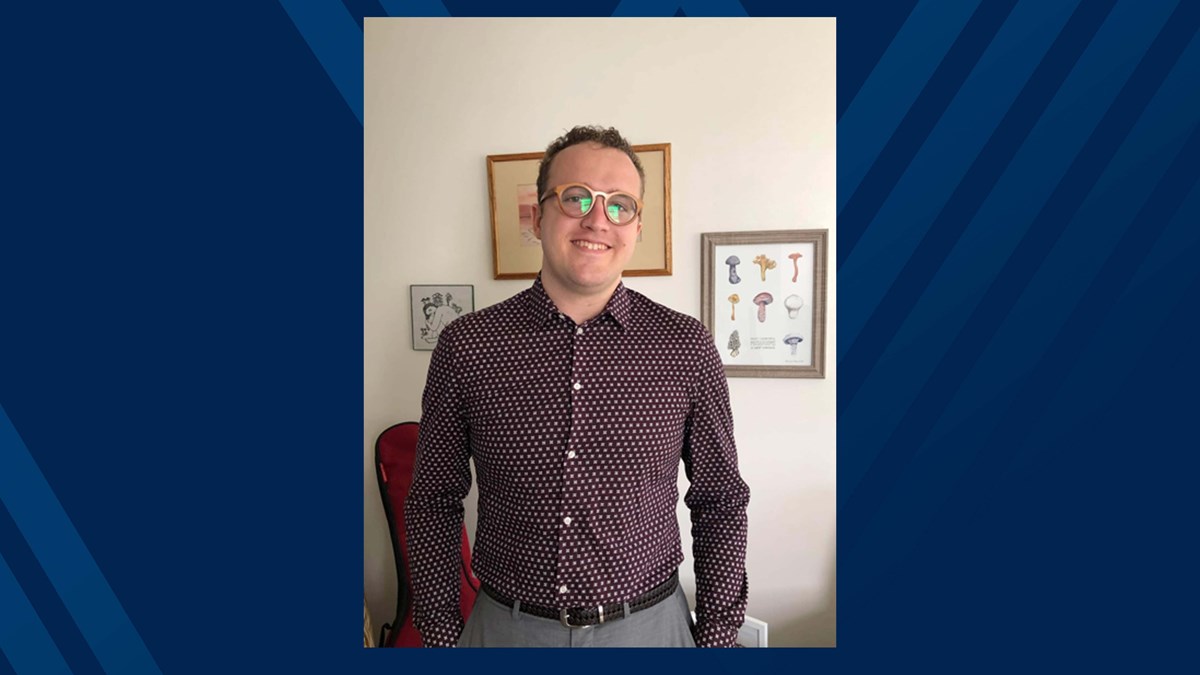Ryan O'Connell

“In my time as an undergraduate, I had a lot of fun doing different research projects, including a WVU summer research program. During that experience, I learned about the exciting research that was taking place here, and I decided to apply.”
Where did you earn your undergraduate degree and what did you major in?
I went to Davis & Elkins College for my undergraduate degree and had a triple major in chemistry, biology and mathematics.
What made you want to get your Ph. D. here at WVU?
In my time as an undergraduate, I had a lot of fun doing different research projects, including a WVU summer research program. During that experience, I learned about the exciting research that was taking place here, and I decided to apply.
What made you interested in the Biochemistry and Molecular Medicine Graduate program?
The lab that caught my attention was the rapid scan electron paramagnetic resonance imaging laboratory run by Dr. Mark Tseytlin in the Department of Biochemistry and Molecular Medicine. In his lab, I have built and programmed RS EPR imaging devices, medical imaging devices similar to MRI or NMR. We have used these devices in several different applications, from assessing the improvement that treatments have on mouse tumors, to determining the oxygen consumption of cells in bioprinted objects by looking at how maps of oxygen concentration change over time. I knew Dr. Tseytlin’s lab was a good fit for me to contribute to important research, while also growing my own research skills as much as possible.
So far, what is your favorite thing about the Biochemistry and Molecular Medicine program?
The Department of Biochemistry and Molecular Medicine brings together people from a variety of different disciplines, countries and backgrounds. The Department's diverse faculty and student body supplies a wealth of knowledge from a multitude of fields I would have otherwise never have been introduced to.
Have you received any particular honors or awards during your time here?
I won a poster award at the Rocky Mountain EPR conference, an international conference focused on magnetic resonance held in Colorado each year. I had the opportunity to talk with people from all over the world about the research I was doing, and we discussed how my research could be implemented in their research as well. Meeting the top scientists in the field of magnetic resonance and learning about their research was both exciting and inspiring.
Share something unique or interesting about you that others may not know?
I enjoy being outside in nature whether gardening, hiking or studying plants. I also play guitar and accordion.
What are your goals after graduating?
A life goal for me after graduation is to move to Poland for a few years. My fiancé’s first language is Polish, so it is important for me to learn to speak Polish fluently.
What are your career goals? What are next steps for you professionally?
I am applying to labs in both academia and industry. After my graduate studies, I still love conducting research and want to see what I can learn about science that hasn’t been shown yet.
What would you tell prospective students about WVU and the School of Medicine?
There are endless opportunities available for students to explore here as an undergraduate, graduate or professional student. All kinds of innovative research is being done at WVU and the School of Medicine. Even more than this, there are different clubs, student organizations and opportunities available as well. During my time here, I’ve played recreational soccer, and I was a member of the West Virginia Mountaineer Area Rescue Group. Being involved in campus life is a very important part of education that gives you the opportunity to make friends and to interact with the community beyond the classroom. At WVU, there is no shortage of ways to get involved.
Do you have any advice for anyone thinking about a Ph.D.?
Probably the most important lesson I’ve learned during my time here is that earning your Ph.D. is not just about learning how to do research, but also how to best manage your relationships, especially when it comes to expectations. What expectations does your mentor have of you? What expectations do you have of your mentor? Make sure you think about these questions.